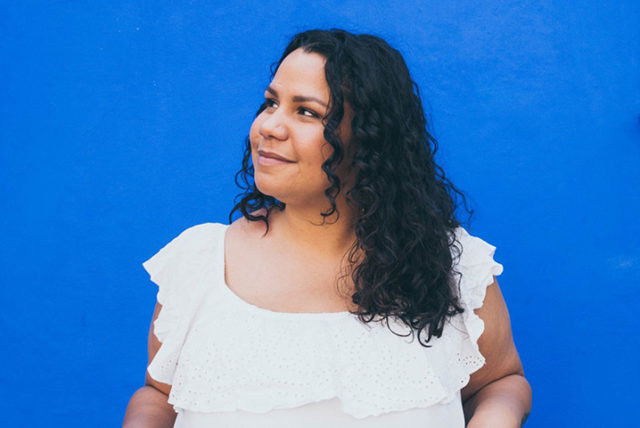 This piece was produced for and originally published in Badger Vibes, our collaboration with the Wisconsin Foundation and Alumni Association.
This piece was produced for and originally published in Badger Vibes, our collaboration with the Wisconsin Foundation and Alumni Association.
Ashley Lee imagines a freer community where her nieces and nephew can thrive in Milwaukee, a city she loves. “I’ve always been from 53216,” she says.
Today, Lee is the executive director of Public Allies Milwaukee, a social-justice organization focused on creating positive community change and encouraging young leaders. She’s already making a splash: last spring, Lee received the Governor’s Service Award for AmeriCorps Alumni of the Year, as well as the UW–Madison Nelson Institute’s Rising Alumni Award.
Born and raised in the Sherman Park neighborhood on Milwaukee’s north side, Lee has a deep admiration for the community. People there look out for one another, and parents look after others’ children like their own. Residents like Lee felt a sense of pride and ownership over the neighborhood.
“We were joyful,” she says. “We were really happy and had a strong community.”
Lee felt a sense of both freedom and safety at home. As a young adult, she and her friends felt comfortable exploring the neighborhood because their neighbors cared about them. She also says the members of her community had big personalities.
“When you talk to people about Milwaukee, they always assume that you’re poor or they should feel sorry for you, but I remember many [positive] things,” Lee recalls.
She also remembers her neighbors feeling the need to keep up the neighborhood, protecting their community. As a young person, Lee never saw the city’s north side as having distinct neighborhoods. Residents felt pride in the continuity of businesses throughout the north side. “We had small business owners that were really planting roots and staying here,” she says.
Lee would later return to those same roots, but only after she moved to the state’s capital to pursue an education at the University of Wisconsin–Madison as a TRIO scholar. Lee says she did not initially love Madison.
“I just really felt that I was missing people that I was used to seeing. Black people. I didn’t really feel like I belonged,” says Lee. She witnessed a lot of racism and hostility toward students of color, particularly Black students, during her freshman year. She felt grateful to have friends from high school beside her. She stayed busy, working both at home on the weekends and on campus with the UW’s Precollege Enrichment Opportunity Program for Learning Excellence (PEOPLE). “For me, it helped that I was friends with people in the PEOPLE program,” she says.
Besides work, Lee connected herself with a variety of student organizations and communities, including the Multicultural Student Center and Multicultural Greek Council. She also joined Kappa Delta Chi, also known as K-D Chi, a Latina sorority that prides itself on community service. Throughout her years on campus, she participated in the Community Environmental Scholars Program (CESP) and various student leadership programs focused on equity.
“In the spaces that I wasn’t invited to,” Lee says, “I could go into those spaces and demand that I could be, too.”
She credits her UW experience for the next chapter in her life — back home in Milwaukee. Lee joined Teach For America (TFA), working both as a corps member in 2011 and a regional services manager in 2013. Like she did in Madison, she challenged her peers to think about equity.
“I joined TFA, and it was another pretty white space. It was super similar [to Madison] in that there were ways that I felt like I didn’t belong,” Lee says.
In 2015, she transitioned to working for Milwaukee Public Schools as a special assistant to the superintendent. She admired how former superintendent Darienne Driver improved facilities and brought new partnerships to the district. “She did a really good job of bringing people along and focusing on equity,” Lee says. In this role, Lee learned about making tough decisions while including the community in each step of the way.
She would carry this experience with her to her role as executive director for Public Allies. Lee loves her current job, and the environment reminds her of the Multicultural Student Center at the UW. While she feels an incredible responsibility to do right by her community, she feels supported to do innovative work.
“I think it feels like this is where I’m supposed to be. It feels good in that way,” she says. “But it also makes me sad, because there are so many leaders of color that are in spaces that aren’t so liberating.”
She wants Milwaukee residents to feel empowered to make decisions for their neighborhoods. Lee also hopes her nieces and nephew will grow up with a strong sense of identity and not feel constrained because of their race. While she cannot fully imagine what a free Milwaukee would look like for Black, brown and economically disadvantaged residents — because she’s never seen it — she would like to see change.
“I want bold leadership,” Lee says. “I want people to make really hard decisions and not to hold back because it has never been done before.”




























